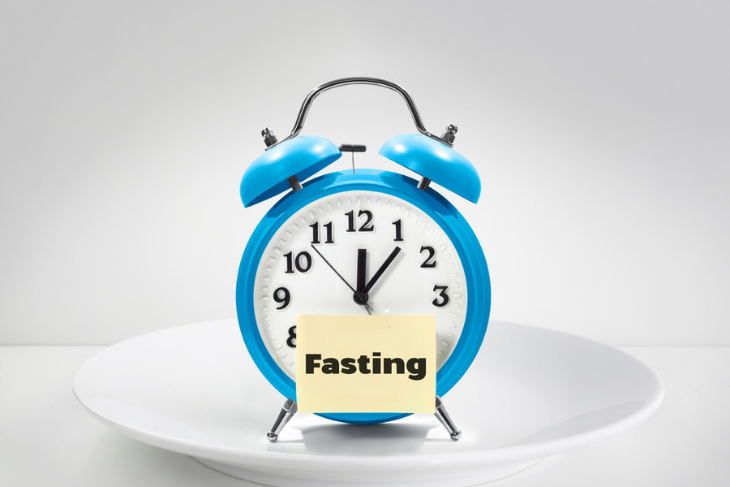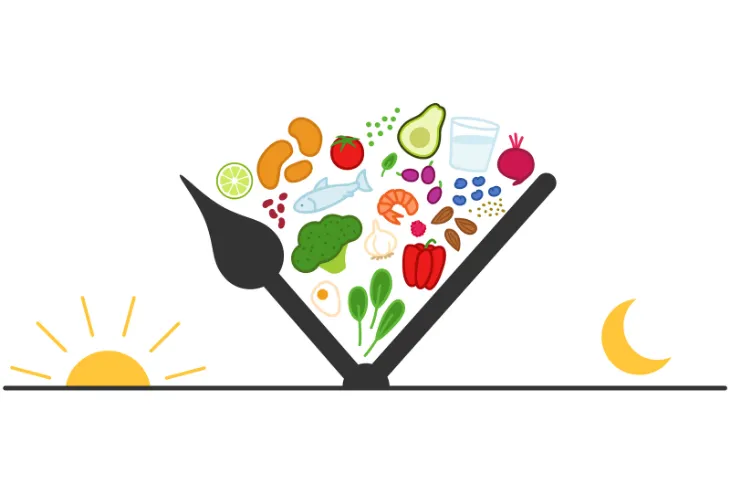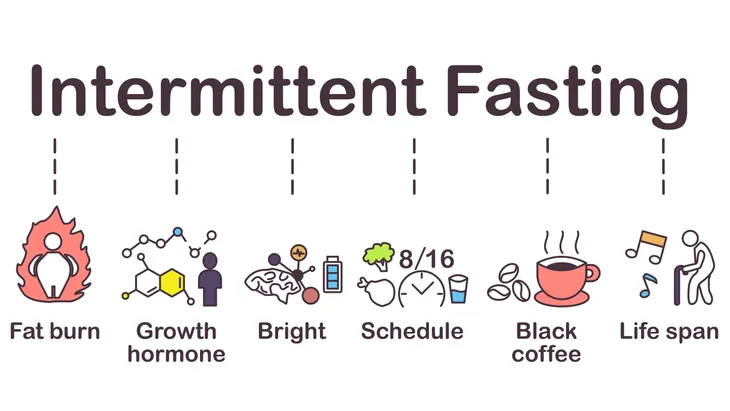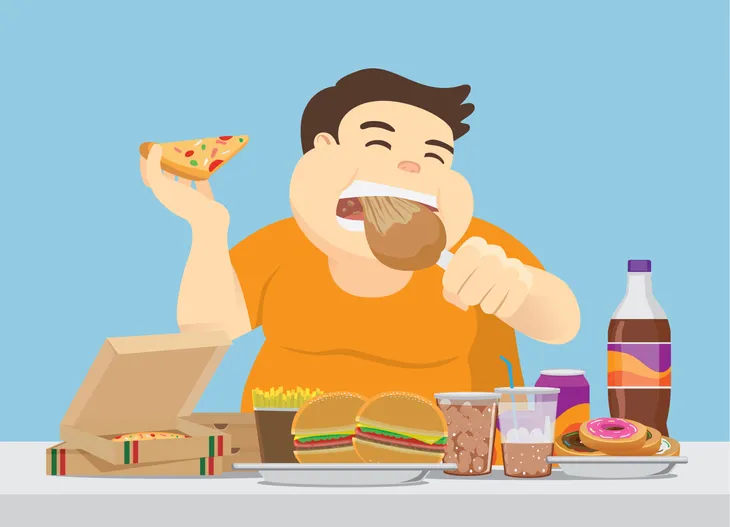Fasting is an ancient religious practice that may have some surprising benefits for modern health. While the scientific community is far from a consensus, there is evidence that suggests fasting stimulates a surprising array of positive influences on the body. While there are known risks involved with fasting that need to be accounted for, unexpected benefits are coming into clearer focus as well.
Fasting influences everything from the immune system to mental health to weight loss. This may indicate that our obsession with what we eat has been misplaced. Instead, perhaps our focus should be on when we eat. Here are eight things you should know about fasting…
The Health Benefits of Fasting
Here is how fasting benefits your health in a nutshell. Fasting puts a mild stress on the body that stimulates a positive response, sort of like exercising a muscle. You need to put stress on it via exercise in order for it to grow stronger. Except in this case, depriving your system of calories puts stress on your entire body so there is a more broad-based effect, according to research from the University of Southern California.
With your immune system, hunger triggers a recycling process that reduces the amount of damaged or unused immune cells to save energy. This helps fight against many common autoimmune problems like arthritis, lupus, and type 1 diabetes. With detoxification, fasting helps expunge the toxins stored in your fat cells. Additionally, after a few days, fasting also leads to a higher production of endorphins in the bloodstream leading to a more positive sense of wellbeing. Finally, reducing caloric intake reduces stress on your internal organs and can help them go the extra mile later in life in effect prolonging your lifespan.
Fast in Moderation
Everything in moderation is a saying that applies to fasting. This is especially true with fasting since we need food to sustain life. Fasting is unlike certain forms of exercise where the more you do it, the more progress you will make. While regular fasting may offer certain people the benefits they are looking for, occasional fasting offers most of the same benefits minus constant hunger.
What an occasional fast offers you is the temporary stress of hunger that will trigger a positive reaction in your body. For instance, fasting serves as a kick-start to the immune system, according to research from the University of Southern California, because the body will utilize white blood cells in order to compensate for the lack of calories. This in turn fires up the immune system to begin regenerating itself. But this is not something that needs to be done on a daily basis. Doing it only on a weekly, or even monthly basis can be just as beneficial.
It’s Not Business as Usual
When beginning to fast it would be unwise to expect yourself to pull it off successfully in the middle of the workweek. This is a recipe for disaster and ultimate failure. When you fast, especially in the beginning, clear your schedule or do it at a time when you have no responsibilities. This way you can concentrate on what you are trying to achieve and talk yourself through any gnawing cravings you may develop. It’s also a lot easier to sit and rest while on a fast than it is to deal with the stress of the workplace.
The main reason you want to be at rest during a fast is that if you are active, your body will likely end up burning up muscle for energy once the calories are gone. If you rest, however, your body can access fat, which is a more inefficient fuel source and takes longer to burn.
Treat Yourself Before You Fast
It’s a good idea to eat something that you consider scrumptious and filling before embarking on a fast. This helps fight the cravings you will undoubtedly feel during your fast. Some people make the mistake of trying to wind down their food consumption as they approach a scheduled fast. They fear going cold turkey, so they wean themselves off food and nibble on celery and carrots as a way to prepare.
This is the wrong approach. Eat well leading up to a fast so that you have the calorie base to sustain you through it. Once you gain some experience in doing this, your pre-fast meals may become something of a sacred ritual whereby that meal will become a highly anticipated special occasion.
Find the Right Type of Fast
With fasting, there is more than one way to incorporate it into your busy schedule. But scheduling is definitely key and New York Times best-selling author, Dr. Mercola, recommends trying one of the common fasting approaches rather than doing it in a haphazard manner. Daily Intermittent Fasting is an approach where a 16-hour fasting period follows an 8-hour eating period and then repeated on a daily basis, a rigorous approach that requires discipline.
Then there is the Weekly Intermittent Fasting, which is often a good way for new fasters to try out the process because it only requires one day a week, or even one day a month. And remember, occasionally fasting is believed to offer all the benefits of regular fasting. Then there is Alternate Day Fasting, which demands fasts as long as 24-hours on different days of the week. Each person will have to experiment with the different approaches to see which one best fits their schedule and their comfort level.
Keep Your Fast to Yourself
Fasting is still such a counterintuitive idea that mentioning it to others will probably induce eye rolls and shaking heads. In addition, it will put more pressure on you. Once you have advertised what you are doing, your focus will be off what you are trying to achieve by fasting and on other people’s’ perceptions of what you are doing.
Because you cannot underestimate the mental challenges of fasting, the last thing you want to do is place extra psychological stress on yourself. You need to focus on the fast, not what other people think of you fasting. Besides, if you take up fasting as a way to create an image of yourself in other’s minds, you will fail. Think of all the times people have gone out of their way to tell other people that they have gone vegan or gluten free. Where are they now?
Health Risks to Fasting
Alongside the health benefits associated with fasting, WebMD outlines a number of health issues that are worth considering. Fasting can often lead to dehydration because the body takes in fluids from food as well as liquids. Another problem is headaches, which many people experience when too much time has elapsed between meals. Then there is the stress that comes along with hunger, which is why you should not try to do too much when fasting.
One of the more surprising problems with fasting is heartburn. What can happen during fasting is that if you happen to smell food, or even think about food, your brain may order your stomach to produce the acid needed to digest food because it’s anticipating eating. But when no food is eaten, that excess acid becomes a problem. People under the age of 18, pregnant women, diabetics, and those recovering from surgery should avoid fasting as their systems may not be equipped to deal with the stress.
Beware the Post-Fast Gorge
One of the biggest problems with fasting that critics point to is the way people eat once they have completed the fast. Research from WebMD states that instead of evenly distributing your caloric intake at regular intervals, fasters will often take in a massive amount of calories in one sitting after taking in nothing but water for an extended period of time.
As we already know, overeating is always problematic, but especially so when your system is weak from fasting. Fasters need to control themselves when they have completed a fast. Eat slowly and a healthy amount. The last thing you want to do is cancel out any of the positive benefits that you just suffered for.











